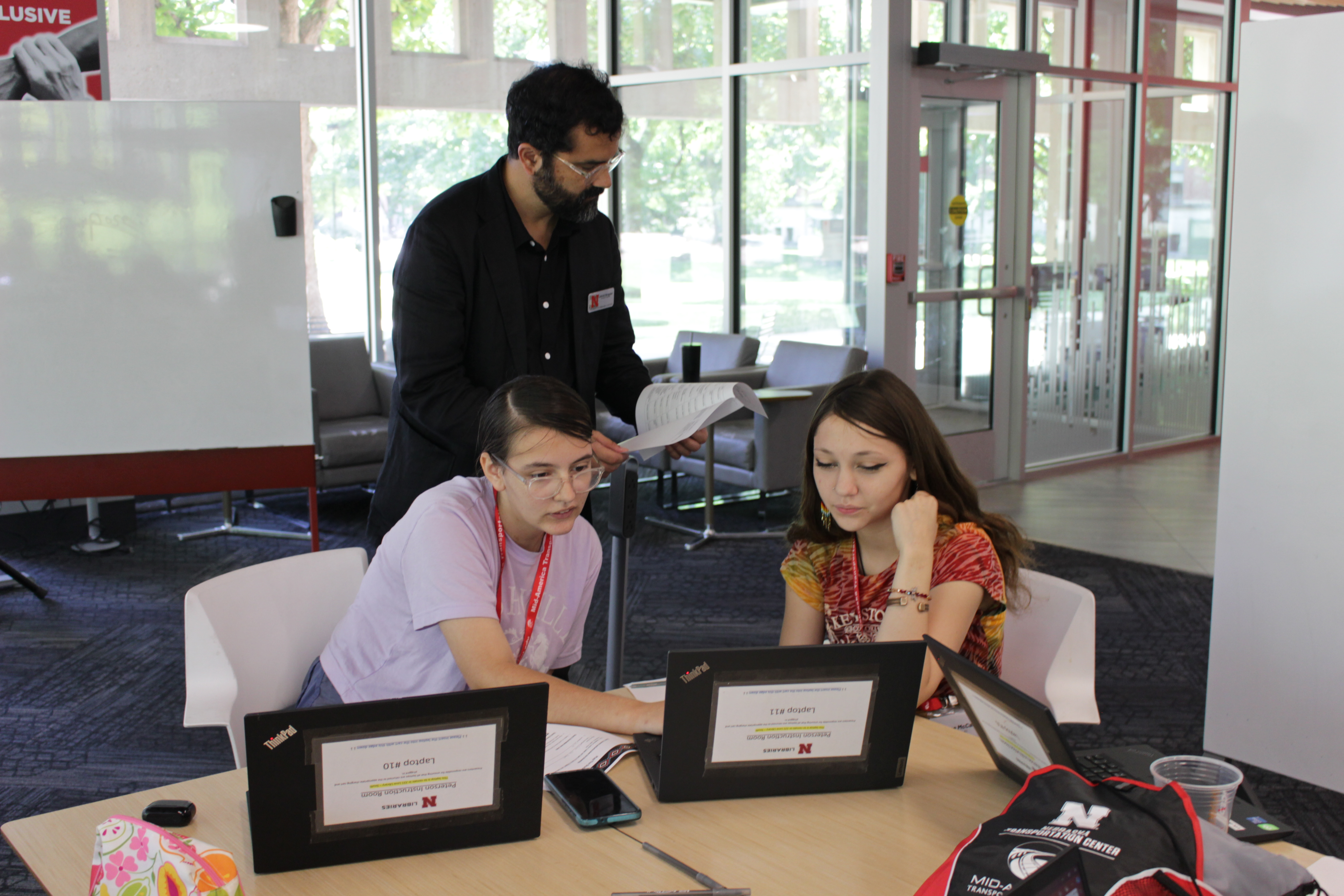
“It is important that you feel comfortable and know that you belong here” were the words of welcome given by Charlene Maxey-Harris, associate dean of University Libraries, to 23 Native American students from the Sovereign Native Youth STEM Leadership Academy, sponsored by the Mid-America Transportation Center, part of UNL’s College of Engineering. The students spent the day in the Adele Hall Learning Commons working on two activities and visiting Archives & Special Collections.
Gabe Bruguier, assistant professor and research specialist librarian, coordinated the students’ visit with the Libraries and planned all activities with the assistance of colleagues, including Wenjie Wang, assistant professor and geospatial data and programs librarian; Toni Anaya, associate director, Information Services and Learning Spaces; and Traci Robison, assistant professor of practice and outreach archivist.
For the first activity, titled Map the Stacks, “each student was given a book title to search in the Libraries catalog, find it on the shelf in Love Library, map its location using their cell phone and ArcGIS Survey123 software, and rate their experience,” explained Bruguier.
In the afternoon, the activity was Seeing Yourself on Campus, which involved the students learning to put themselves on a map of the UNL campus by entering data using Survey123. Then they also spent some time in Archives & Special Collections.
“The goal of these activities was to familiarize students with new technology and to give them a kickstart in using an academic library—a key to their success once they are college students. At the end of our activities, students were quite literally able to see themselves on campus,” explained Bruguier.
The Sovereign Native Youth STEM Leadership Academy is a summer program that provides students with an extended learning opportunity in science, technology, engineering, and math (STEM) subjects and leadership opportunities. The program has been active at UNL since 2017. Students explore a wide range of education and career options after high school through the mentorship of Native American faculty, university students, and professionals in the public and private sectors.